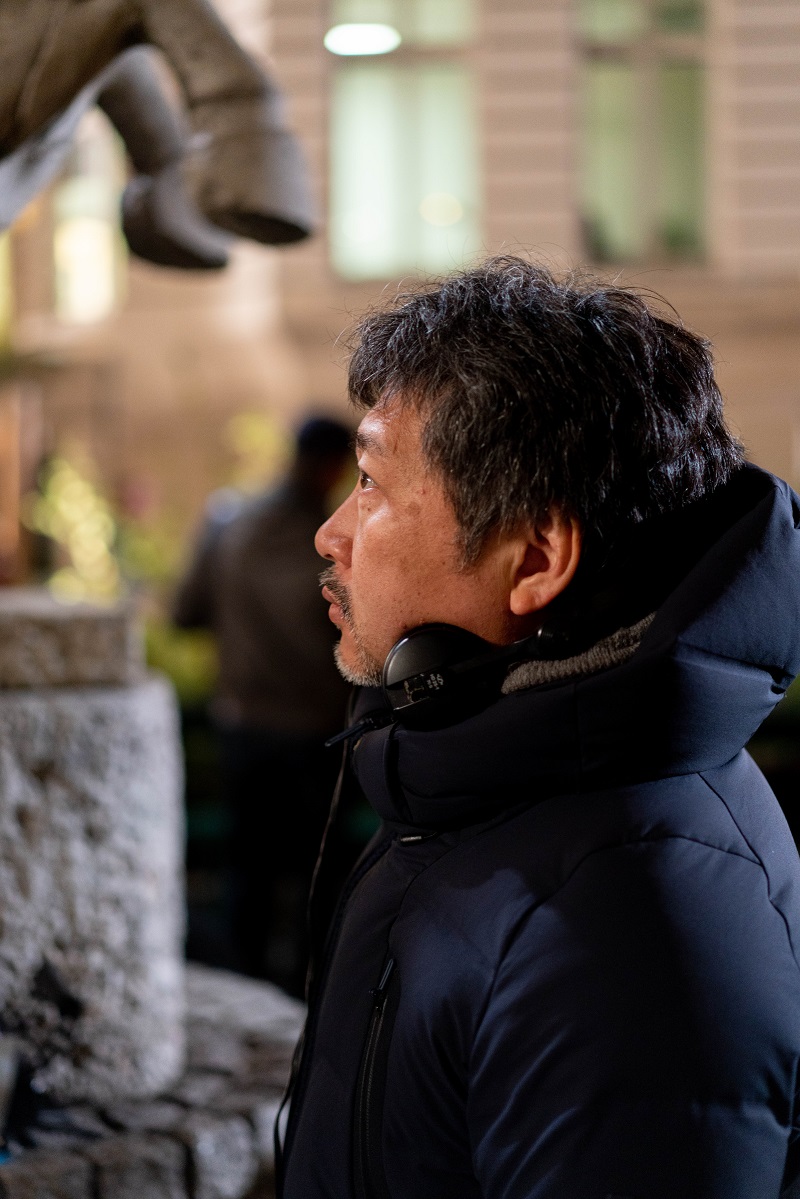At first glance, Hirokazu Kore-eda seems an unlikely auteur to import his sensibilities to a foreign environment. His previous films, which include such heart-rending classics as “Still Walking” and 2018’s “Shoplifters,” feel innately attuned to Japanese culture and family dynamics, with many critics (sometimes to Kore-eda’s confusion) lauding him as the heir to Yasujiro Ozu. His works are delicate, humanistic works zeroing in on ordinary people and their fractured ties to each other, often to families both biological and found.
In the wake of the critical success of “Shoplifters” (and its Palme D’Or win at Cannes), Kore-eda used that momentum to start work on his first Western-language film, “The Truth.” Perhaps unsurprisingly, Kore-eda’s empathetic obsession with family translates well to the deeply European tale of Fabienne Dangeville (Catherine Deneuve, luminous and spiky in equal measure), an aging actress reflecting on her past mistakes, as her screenwriter daughter (Juliette Binoche) and boorish son-in-law (Ethan Hawke) come to visit.
Irrelevance and regret attack her from multiple sides, whether in the form of her memoirs—in which selective edits rub smooth the jagged edges of her youth—or her current role in a science-fiction film in which she tries, and fails, to upstage the young, beautiful lead (Manon Clavel), who reminds her of a now-dead contemporary to whom she was constantly compared. It’s a beautifully metatextual take on Deneuve’s own career, interrogating her status as one of the last movie stars of a bygone era.
Around the time of the originally-planned release date in March (before the coronavirus pandemic led IFC to push it back to July 3), I sat down with Kore-eda, aided by a translator, to talk about adapting his sensibilities to a Western milieu and whether every film needs a little bit of poetry.
What led you to break out into your first Western-language film?
I am a director who only speaks Japanese, and so I always presumed that I would only make sense in Japan. But in the last 10 years or so, I have been getting invitations from different countries to make films there. But the most persistent and persuasive invitations, along with assurances that I would be fine making a film there, were from France. Specifically, it was Juliette Binoche that kept insisting, trying to persuade me to make a film with her in it. In 2015, I gave her the outline of the film that became “The Truth.” Really, it’s a matter of her persistent invitation to make a film.
How closely had you followed the work of actors like Juliette Binoche, Catherine Deneuve, and Ethan Hawke? When crafting the script, did you draw at all from their careers to date?
Yes. I have always been a fan of Catherine Deneuve and Ethan Hawke as well. So much so that in 2015 when I made the decision to set the film in France, the very first page of the film, I wrote, “Catherine Deneuve is the mother, Juliette Binoche is her daughter, and Ethan Hawke is her husband.” And so my dream casting came through, and I’m thrilled. I literally wrote the script for them for each of those.

You’ve often told stories from the perspective of working-class (or in the case of “Shoplifters,” very impoverished) family dynamics. The characters in “The Truth” feel like your most, for lack of a better word, privileged set of characters. What did you want to explore with a family dynamic in such a different class realm?
I honestly wasn’t really conscious or aware of any kind of differing dynamics between sort of the more impoverished family and wealthy family in this film. I was interested in exploring the fundamental simmering difficulties and complexities between a mother and a daughter. And I would imagine that those kinds of tensions exist regardless of economic class position, of course.
What did you want to express about the mother/daughter dynamic between Deneuve and Binoche?
So, as we know, perfect is not something that they only do on stage certainly. Many of us perform our familiar role. Women can “perform” being a mother, “perform” being a daughter. I was interested in having, as Deneuve is performing in the film within the film, elements of her daily life start to seep into that performance, and performing elements start to seep into her actual life. With the intermingling of those two elements, we start to see the tension between the mother and the daughter somewhat soften and start to shift. That’s what I was interested in portraying.
Then, of course, there’s the film’s title, “The Truth”, which refers at least in part to Fabienne’s memoir, which the daughter realizes throughout the course of the film there are certain truths or facts omitted from it. Did you want to explore the way we edit our own lives to create a more pleasing history for ourselves?
You could think that, in terms of Fabienne, it’s the elements that she omitted that, in fact, contain “The Truth”. But our lives are certainly not made up entirely of “The Truth”. So the way I wanted to convey that was by having the Fabienne character ask her own daughter to write lines for her to perform in real life. Then the daughter also then writes lines for her granddaughter, to speak to her grandmother about how I wish you’d get on a spaceship. So that was my way of tipping my hat to that.
Going back to the film within a film, how much consideration did you have to give to crafting that movie as a full story? As opposed to using it to reflect the character dynamics of Fabienne and her daughter?
The film within a film, the set, and everything had to look totally professional and believable. And so the cameraman for that film is the real cameraman. And the lighting is, you know, totally commensurate to the larger film. But I didn’t film that whole movie. And so we just filmed essentially excerpts from it. It doesn’t have a completed script that we could shoot tomorrow.
I wanted to ask about possibly my favorite small moment in the movie, which is the big dance scene near the end, where the entire family just sort of dances in the street and lets the whole world fall away and all these problems dissipate. Why did you choose to include that scene?
It’s impossible to have that kind of scene happen in Japan because Japanese people would never just start dancing in the streets [laughs]. As soon as I decided that I was going to make a movie set in France, I said to myself that would be a scene of people dancing in the street.
How about Poppy Pierre, and the almost supernatural element of him possibly turning into a turtle when he’s not on screen. What were you trying to express with that character, especially his almost fable-like relationship with his granddaughter?
That began with my idea that a little girl from America would come to France and find a castle with a witch and all kinds of bewitched animals and creatures. My sense was that I wanted that little girl to have the experience of living in a fairy tale. So what could I populate the castle with other than a witch? Well, we have a timid lion and we have a turtle. That might be a witch. That’s kind of the thinking that was behind that.
Early in the film, one line that struck me comes from Fabienne: “Poetry is necessary in film, whether it’s about politics or the daily grind.” Do you personally think that’s true, especially of your works?
Yes, that’s exactly what I believe. Not all of Fabienne’s dialogue expresses a personal point of view nor my personal point of view. I definitely wrote dialogue for her that expresses neither. But that line is 100% me and my sensibility.












